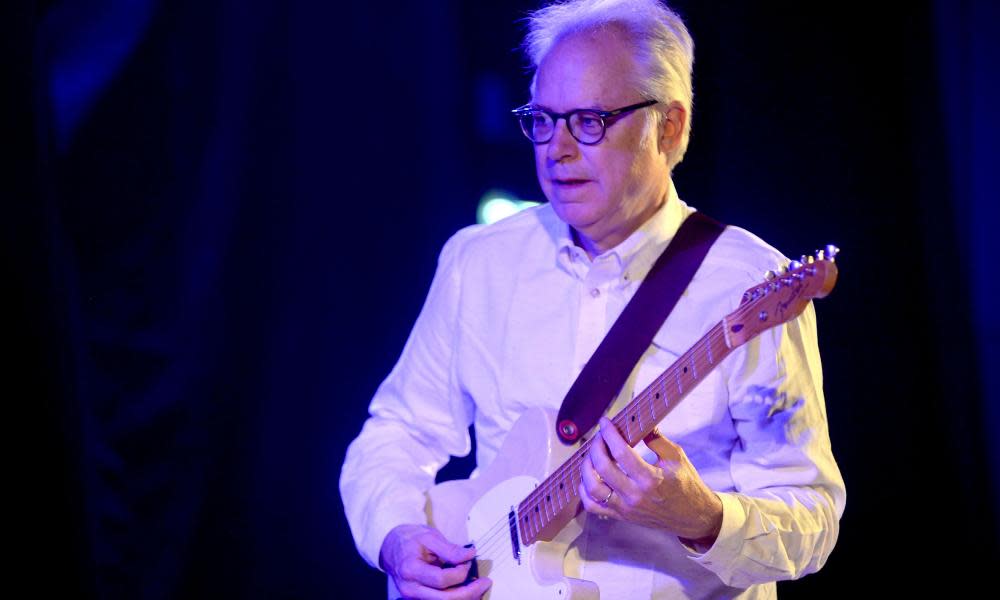Bill Frisell Trio review – memorable journey with the quiet maestro

“We’re surrounded!” Bill Frisell exclaimed, blinking in unmistakable delight at the expectant intimacy of the packed Jazz Cafe on Monday. Across four decades of original composition, technical vision and jazz-improv audacity, the quiet Seattle maestro has become the Jimi Hendrix of contemporary music’s quirkier forms, revolutionising the palette of the electric guitar, and inspiring artists from avant-rockers to electronic producers.
One of his most empathic partnerships has been this occasional but long-matured trio with Tony Scherr on bass and Kenny Wollesen on drums. They mostly play the world’s concert halls, and the sight of glowing faces at the edge of the cramped stage sparked the band into a truly memorable single-set show.
As so often for Frisell, country music played a big part, particularly in the opening pieces, including a hard-struck and funky country dirge that revealed one of his signature traits: making musical resolutions quiver with so many ambiguities of harmony and colour that even the most conclusive accent or reverberating chord becomes an invitation to travel somewhere else.
After a lazily swinging jazz ballad sketched in Wes Montgomery-like harmonies, followed by a vivacious chord dance, and a playful busk between Frisell and Wollesen while Scherr fixed a broken string to shouts of encouragement, the leader relaxed so much that by his standards he became almost voluble. “There’s so many things I’d like to talk to you about, but I shouldn’t,” he confided, as his thoughts turned to John Coltrane, the 50th anniversary of whose death fell on Monday. Then he wandered, speculatively at first and then with increasingly headlong bebop-drive, into the famous harmonic maze of Coltrane’s Giant Steps, before turning a country slow-burn into an Afrobeat jive, given a sinister echo by the reverse-delay pedal. A gently rapturous What the World Needs Now Is Love and a semi-abstract Goldfinger – with shimmering chords and glimpses of the Bond theme set against Wollesen’s cymbal-rim scrapings – were capped by an uptempo jazz encore, propelled by Scherr’s fast-walking bass and Wollesen’s skimming ride-cymbal groove.
Frisell had earlier paid tribute to the deep-rooted but endlessly flexible American musical traditions he loves with the typical understatement that “this is pretty good music – it just keeps on going”. The cheers of the crowd furnished a very loud amen to that.

 Yahoo News
Yahoo News 
